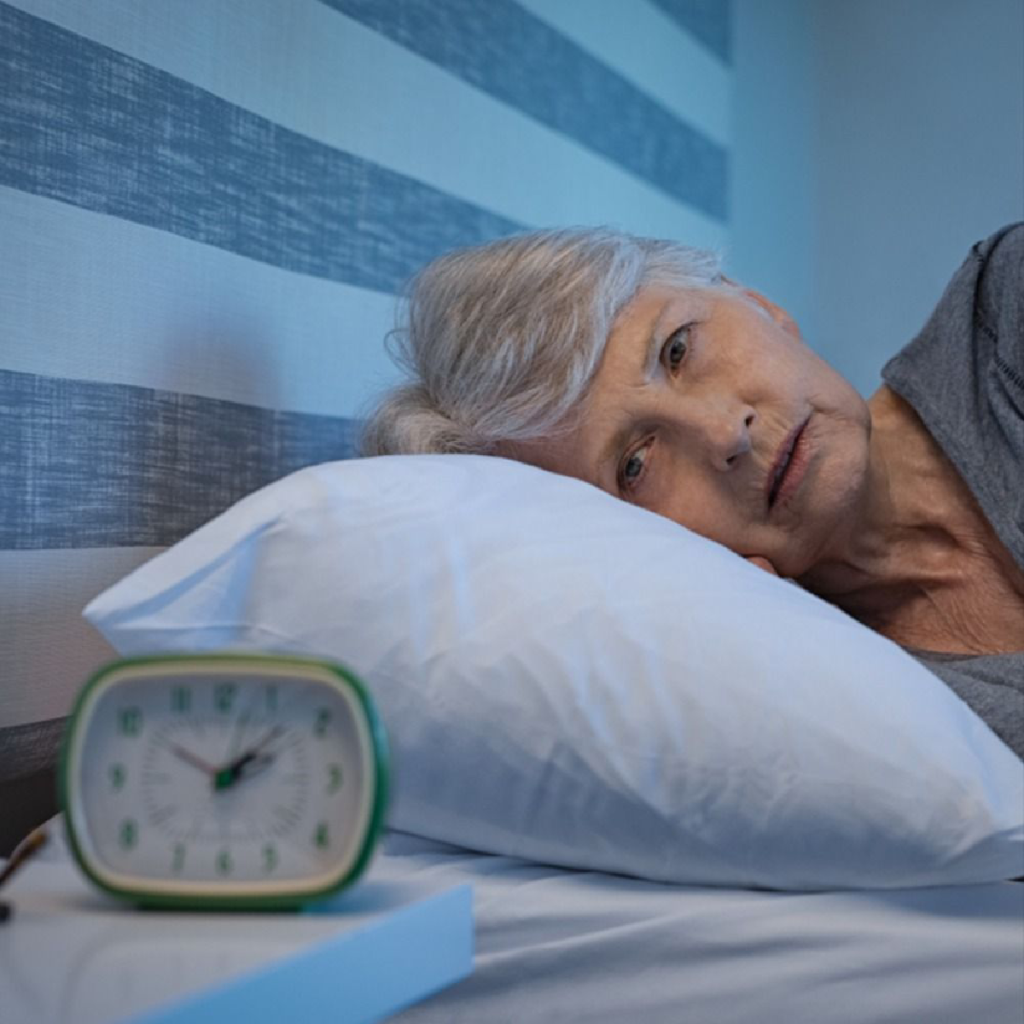Discover the fascinating connection between aging and sleep patterns.
How Does Aging Affect Sleep Patterns?
As we age, many aspects of our lives change, and sleep patterns are no exception. The way we sleep evolves with time, and it’s important to understand how aging affects our slumber. In this article, we’ll dive into the fascinating world of sleep to uncover the mysteries behind this essential activity. So grab a cozy blanket, settle in, and let’s embark on a sleep-filled adventure!

Understanding the Basics of Sleep
Before we delve into the ways aging influences sleep, let’s first grasp the basics. Sleep is not merely a state of unconsciousness; it’s an intricate process that our bodies go through every night. While we snooze, our brains and bodies undergo a series of remarkable changes that ensure we wake up feeling refreshed and rejuvenated.
But why is sleep so important? Well, for starters, it plays a vital role in maintaining our overall health. During sleep, our bodies repair damaged tissues, consolidate memories, and regulate our metabolism. Moreover, a good night’s rest is also crucial for our mental well-being.
When we sleep, our brain waves slow down, and our bodies enter a state of relaxation. This allows our cells to regenerate and repair themselves, promoting healing and growth. In addition, sleep is essential for our immune system, as it helps strengthen our body’s defense mechanisms, making us less susceptible to illnesses.
Furthermore, sleep is closely linked to our cognitive function. It enhances our ability to learn, concentrate, and make decisions. During sleep, our brains process and organize information, making it easier for us to recall and retain knowledge. This is why getting a good night’s sleep before an important exam or presentation is crucial for optimal performance.
The Importance of Sleep for Health
Getting enough sleep is like giving your body a well-deserved vacation. It allows you to recharge your batteries and face the world with renewed energy. Studies have shown that a lack of proper sleep can lead to a myriad of health issues, including an increased risk of heart disease, diabetes, and obesity. So, let’s prioritize sleep and give our bodies the care they deserve!
In addition to physical health, sleep also plays a significant role in our mental and emotional well-being. When we don’t get enough sleep, our mood can be negatively affected, leading to irritability, mood swings, and even depression. On the other hand, a good night’s sleep can improve our mood, increase our resilience to stress, and enhance our overall emotional stability.
Moreover, sleep is closely linked to our weight and metabolism. When we are sleep-deprived, our body’s production of the hormone leptin decreases, while the production of ghrelin, the hormone responsible for hunger, increases. This imbalance can lead to overeating and weight gain. Therefore, maintaining a healthy sleep routine is essential for weight management and overall metabolic health.
The Science Behind Sleep
Sleep is not simply a state of rest; it’s a complex process influenced by various factors. Our sleep-wake cycle, also known as the circadian rhythm, is regulated by a tiny structure in the brain called the suprachiasmatic nucleus. This internal clock helps align our sleep patterns with the rise and fall of the sun.
But sleep is not a one-size-fits-all experience. It consists of different stages, each serving a unique purpose. There’s non-rapid eye movement (NREM) sleep, which is further divided into three stages, and rapid eye movement (REM) sleep, where most of our dreaming takes place. Each stage plays a vital role in ensuring our bodies and minds receive the rest they need.
During NREM sleep, our bodies enter a state of deep relaxation. This is the time when our muscles repair themselves, and our blood pressure and heart rate decrease. NREM sleep is crucial for physical restoration and growth.
On the other hand, REM sleep is characterized by rapid eye movements and increased brain activity. This is when our most vivid dreams occur. REM sleep is essential for cognitive function, memory consolidation, and emotional regulation. It is during this stage that our brains process and make sense of the information we have encountered throughout the day.
Overall, sleep is a fascinating and essential part of our lives. It is a time of restoration, growth, and rejuvenation. By understanding the basics of sleep and its importance for our health and well-being, we can make informed choices to prioritize and improve our sleep habits.
The Aging Process and Its Impact on Sleep
As the years go by, our bodies undergo various changes, and this inevitably affects our sleep patterns. The aging process brings about a shift in our sleep architecture and an increased susceptibility to sleep disorders. So, let’s dig deeper into these age-related changes and understand how they impact our nighttime routines.
Biological Changes with Age
One of the significant biological changes that occur as we age is a decrease in the production of certain hormones, including melatonin. Melatonin is responsible for regulating our sleep-wake cycle and telling our bodies when it’s time to rest. As its levels decline, older adults may experience difficulties falling asleep or staying asleep throughout the night.
In addition to hormone fluctuations, our brains also undergo changes that affect our sleep patterns. The areas of the brain responsible for generating deep sleep tend to shrink with age, leading to lighter and more fragmented sleep.
Moreover, aging can bring about changes in our circadian rhythm, the internal clock that regulates our sleep-wake cycle. This can result in a shift in our natural sleep patterns, making it harder to fall asleep at night and causing daytime sleepiness.
Furthermore, age-related health conditions such as arthritis, chronic pain, and respiratory problems can also contribute to sleep disturbances. These physical ailments can make it challenging to find a comfortable sleeping position and maintain a restful sleep throughout the night.
Sleep Disorders Common in Older Adults
Sleep disorders can affect anyone at any age, but they become more prevalent as we get older. Conditions such as insomnia, sleep apnea, and restless legs syndrome can disrupt our slumber and leave us feeling groggy during the day. These disorders not only impact the quantity and quality of our sleep but can also have adverse effects on our overall health.
Insomnia, characterized by difficulty falling asleep or staying asleep, is a common sleep disorder among older adults. It can be caused by various factors, including stress, anxiety, medication side effects, or underlying health conditions.
Sleep apnea, another prevalent sleep disorder in older adults, is characterized by pauses in breathing during sleep. This condition can lead to frequent awakenings throughout the night, resulting in daytime sleepiness and an increased risk of cardiovascular problems.
Restless legs syndrome (RLS) is a neurological disorder that causes an irresistible urge to move the legs, often accompanied by uncomfortable sensations. This condition can significantly disrupt sleep, making it difficult to achieve a restful night’s sleep.
So, if you find yourself tossing and turning at night or waking up feeling exhausted, it’s essential to consult with a healthcare professional who can help identify and address any underlying sleep disorders. They may recommend lifestyle changes, medication, or other interventions to improve your sleep quality and overall well-being.
How Aging Changes Sleep Patterns
Now that we have a deeper understanding of the biological and neurological changes that accompany aging, let’s explore how these alterations manifest in our sleep patterns.
As we age, our sleep architecture undergoes a transformation. The amount of time spent in deep sleep decreases, while lighter stages of sleep become more predominant. This shift can result in a feeling of not being fully rested upon waking, despite having slept for an adequate duration.
Additionally, older adults may experience more frequent awakenings throughout the night, further disrupting the continuity of their sleep. These interruptions can be attributed to a variety of factors, including discomfort due to age-related health conditions or the need for bathroom breaks.
Furthermore, the changes in sleep architecture can also impact the occurrence of dreams. While younger individuals may vividly remember their dreams, older adults may find it more challenging to recall their dream experiences. This phenomenon is believed to be associated with alterations in brain activity during sleep, specifically in the regions responsible for dream recall and memory consolidation.
Changes in Sleep Duration and Quality
Another notable change that occurs with age is a decrease in the overall duration of sleep. Older adults tend to spend less time in bed compared to their younger counterparts. However, despite spending fewer hours asleep, the quality of sleep may be compromised, leading to daytime sleepiness and a higher susceptibility to fatigue.
Factors such as chronic pain, medication side effects, or increased stress levels can contribute to these changes in sleep duration and quality. Chronic pain conditions, such as arthritis or fibromyalgia, can make it difficult for older adults to find a comfortable sleeping position, resulting in disrupted sleep. Similarly, certain medications commonly prescribed to older individuals, such as diuretics or antidepressants, may have side effects that interfere with sleep patterns.
Moreover, the psychological and emotional aspects of aging can also impact sleep quality. Older adults may experience higher levels of stress, anxiety, or depression, which can disrupt the natural sleep-wake cycle. Additionally, life transitions, such as retirement or the loss of a loved one, can introduce new stressors that affect sleep.
It’s important to address any underlying issues and establish healthy sleep habits to optimize restful slumber. Practicing good sleep hygiene, such as maintaining a consistent sleep schedule, creating a relaxing bedtime routine, and creating a sleep-friendly environment, can help mitigate the effects of aging on sleep patterns.
The Consequences of Poor Sleep in Older Adults
While the occasional restless night may not seem like a big deal, chronic sleep deprivation can have significant consequences, particularly for older adults.
Physical Health Risks
Lack of sleep can take a toll on our physical well-being, increasing the risk of developing chronic conditions such as cardiovascular disease, diabetes, and obesity. Additionally, poor sleep has been linked to a weakened immune system, making older adults more susceptible to infections and illnesses.
Mental Health Risks
It’s not just our physical health that’s at stake when our sleep patterns are disrupted. Sleep deprivation can also have a profound impact on our mental well-being. Older adults who consistently struggle to get a good night’s sleep may experience mood swings, memory problems, and an increased risk of developing mental health disorders like depression and anxiety.
Strategies to Improve Sleep in Older Adults
Now that we understand the challenges that aging can pose to our sleep, it’s time to explore strategies to enhance our nighttime routines and promote restful slumber.

Lifestyle Modifications for Better Sleep
A good sleep routine starts with healthy lifestyle habits. Incorporating regular exercise into your day, avoiding caffeine and heavy meals close to bedtime, and creating a relaxing sleep environment can significantly improve the quality of your sleep. Establishing a consistent sleep schedule can also help regulate your body’s internal clock and promote more restful nights.
Medical Interventions for Sleep Disorders
If you find that lifestyle modifications alone are not sufficient to address your sleep concerns, it may be beneficial to seek medical interventions. Sleep disorders can often be effectively managed with the help of healthcare professionals. From medications that promote healthy sleep to therapies specifically designed for certain conditions, there are various options available to restore balance to your sleep patterns.
Conclusion
Aging brings about changes in various aspects of our lives, and sleep patterns are no exception. Understanding these shifts and their impact on our well-being is the first step toward improving our sleep in our golden years. By prioritizing restful slumber and implementing strategies to promote healthy sleep habits, we can embrace the aging process with open arms and peacefully drift off into dreamland each night. So, here’s to a lifetime of sweet dreams and rejuvenating slumber!







